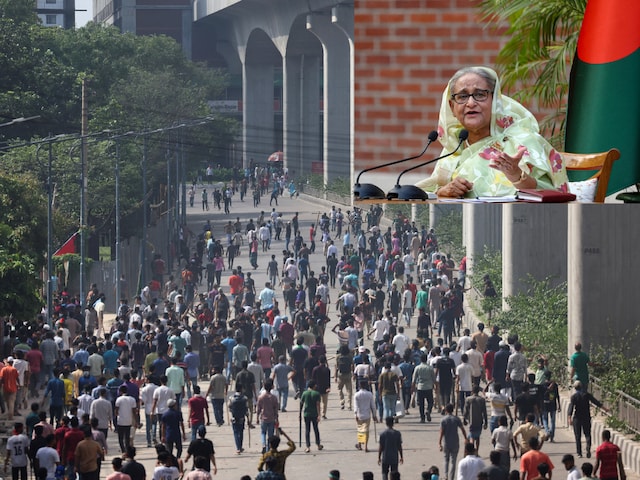Lessons from Hasina’s Downfall
Mohammad Taukir Rahmani
EC Exclusive
The end was sudden and unceremonious. Five decades after her father, Sheikh Mujibur Rahman, the founder of Bangladesh, was assassinated, Sheikh Hasina’s controversial 15-year reign came to an abrupt end. She was hastily removed from the country by helicopter, her legacy marred by the tragic deaths of hundreds of student protesters at the hands of government forces and ruling party militants over the preceding three weeks.
The immediate cause of the unrest was a controversial reservation policy that allocated a third of government jobs to descendants of freedom fighters—a category rife with opportunities for corruption. However, discontent had been simmering over a long period due to perceived electoral fraud, the undermining of democratic processes, severe repression of dissent, and widespread anxiety among the youth about their future job prospects and living standards.

Sheikh Hasina’s autocratic tendencies echoed the despotic rule of historical figures like Adolf Hitler and Benito Mussolini. She personified the very essence of fascism. However, history has consistently demonstrated that fascist and communist regimes, exemplified by Hitler, Mussolini, and Stalin, cannot sustain themselves indefinitely. This should serve as an indelible lesson to other nations, tyrannical leaders, and advocates of authoritarian ideologies. The proverb “God’s mills grind slowly, but surely” aptly captures this inevitability.
In a democratic country, the principles of governance ensure that no leader or party can impose a dictatorship, as authoritarian rule is fundamentally incompatible with democratic values. Here, the power rests with the people, who elect their government through free and fair elections. This government is accountable to the electorate, and the people retain the right to remove it from office if it fails to meet their expectations. Democracy thrives on the notion that it is “a government of the people, by the people, for the people,” ensuring that the voices and choices of ordinary citizens are respected and upheld.

Now that Bangladesh is under military governance, it is essential to recognize that such a situation should not persist for long. However, before the implementation of military governance, Bangladesh must engage in deep introspection, reflecting on the complex experiences of its neighboring country, Pakistan. This contemplation should encompass the myriad challenges and lessons learned from Pakistan’s history, urging a consideration of the implications of governance and the delicate balance between authority and democracy. In doing so, a path can be forged that honors shared values, promotes stability, and cultivates a future rooted in unity and progress.










